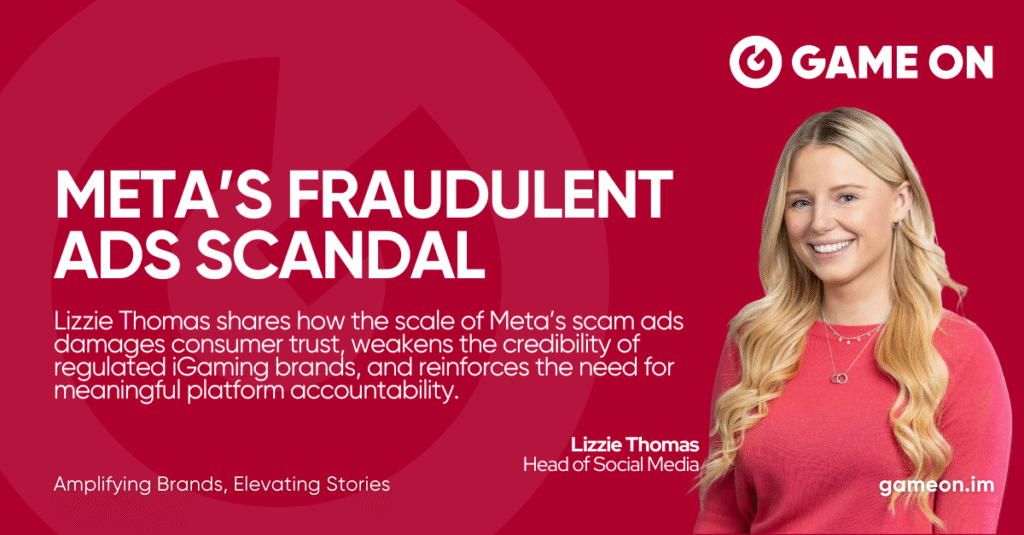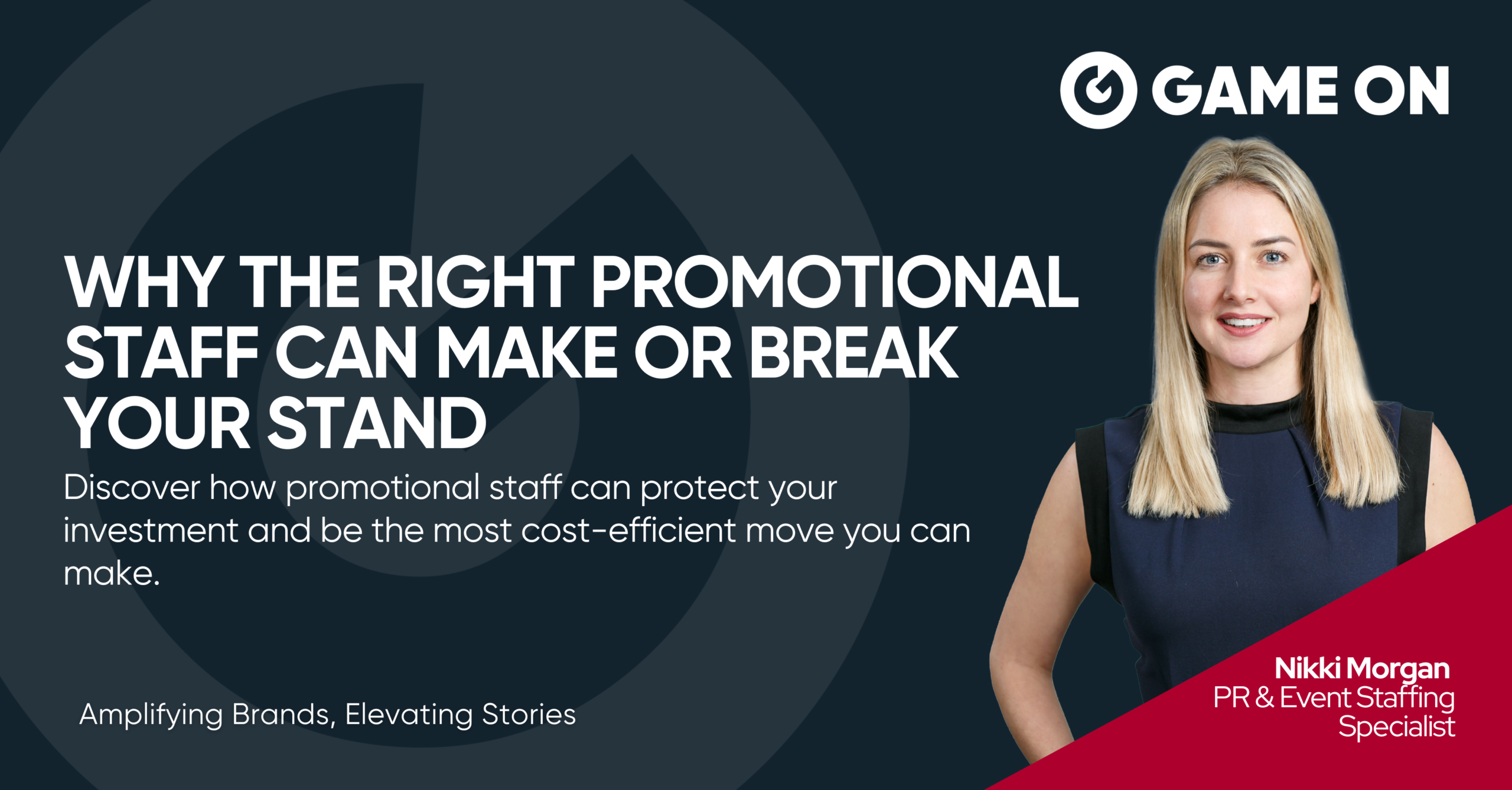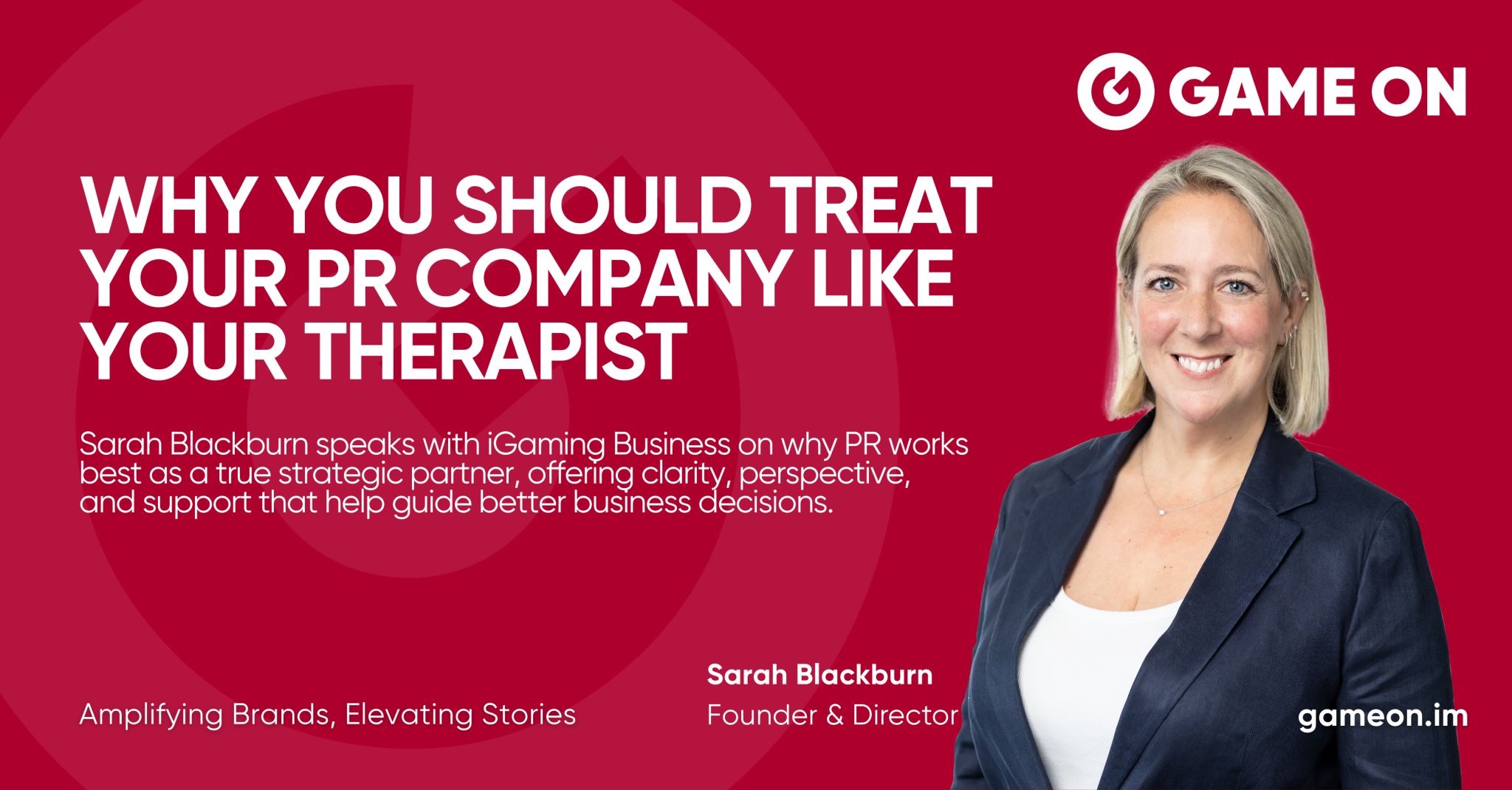Why This Matters for Our Industry
The recent Reuters investigation into Meta’s alleged profits from fraudulent ads has ignited a critical conversation across regulated digital sectors. The scale of the issue is significant. Internal documents reportedly show that Meta projected around 16 billion dollars of its 2024 revenue came from ads promoting scams, illegal online casinos, and banned products. For an industry like ours, built on compliance, licensing, and social responsibility, this should be alarming.
For regulated iGaming brands working to maintain integrity in their advertising, revelations like this shake confidence. They also highlight the long-standing gap between platforms stated safety policies and their real-world enforcement.
At GameOn, we work closely with operators, studios, platforms, and affiliates that play by the rules. Our Head of Social Media, Lizzie Thomas, shares her view on why this matters and what must change.
Lizzie Thomas: “This undermines trust in every legitimate operator doing things the right way”
According to Lizzie, the most damaging part of this story is not simply the volume of fraudulent ads. It is the direct impact this has on perception of the entire sector.
“Licensed operators operate under strict advertising codes, geographical restrictions, and regulatory oversight. They are investing heavily in compliance, creative quality, and responsible messaging. Yet they are competing for visibility in spaces crowded with illegal campaigns. When a platform allows scam ads to proliferate, it does not just harm users. It undermines trust in every legitimate operator doing things the right way.”
Meta’s documents reportedly reveal that around 15 billion high risk ads were shown daily, with some accounts accumulating hundreds of strikes without being closed. For a regulated sector, where one misplaced ad can lead to fines, licence reviews, or reputational damage, this double standard is difficult to reconcile.
A Flawed System Driven by Engagement, Not Protection
One of the most troubling revelations is that users who click on a scam ad are more likely to see another. This is the direct result of how Meta’s personalisation algorithm works: engagement signals relevance. Lizzie explains why this is a fundamental problem.
“This exposes a systemic flaw. Platforms should prioritise user safety, not engagement at any cost. If someone interacts with something harmful, the correct response is intervention, not amplification. For our clients, who take responsible gambling seriously, this is incredibly frustrating. They follow the rules, yet fraudulent actors appear to benefit from leniency simply because of their spend.”
This tension between safety, revenue, and algorithmic design is not new, but the scale outlined in the report is unprecedented.
The Broader Impact on the iGaming Ecosystem
For the wider industry, perception is everything. Even a hint of association with scam content erodes trust with players, partners, affiliates, and regulators.
This issue also ties closely to conversations happening ahead of Safer Gambling Week in the UK. The timing is significant. As the industry prepares to amplify messages about responsibility, harm prevention, and safer play, headlines about illegal operators thriving on the world’s biggest platforms create a conflicting narrative.
Regulated iGaming is one of the most heavily scrutinised digital industries. When illegal operators can run ads unchecked, it creates confusion for consumers and risks diminishing the credibility that regulated brands work hard to build.
The Call for Stronger Oversight
The commentary from Duncan Garvie, alongside global reports from India and Malaysia, makes one thing clear. Social media companies have reached a point of market dominance that demands proportionate accountability.
Across the iGaming sector, operators and suppliers are expected to demonstrate rigorous due diligence. Platforms with far greater scale and influence should not be exempt from the same standard.
For an industry where age-gating, geo-restriction, and compliance checks are mandatory at every stage, it is only reasonable to expect equivalent responsibility from the channels used to advertise.
What Comes Next
Meta has stated it aims to reduce revenue generated from scam ads by half, although internal documents suggest concerns about how this might affect projections. The company also expects to pay regulatory fines, reportedly up to one billion dollars, which pales in comparison to the revenue generated.
For regulated iGaming businesses, the key focus now is maintaining trust. This means:
- Continuing to invest in compliant, responsible advertising.
- Working with agencies and partners who understand the regulatory landscape.
- Remaining vigilant about brand safety within social platforms.
- Using Safer Gambling Week as an opportunity to reinforce the importance of integrity.
At GameOn, the Social Media division works daily with clients to ensure every campaign meets regulatory standards and reflects best practice. We believe a safer, more transparent advertising environment benefits everyone, including the platforms themselves.
Just as operators are held to account, the channels profiting from their advertising should be too.




